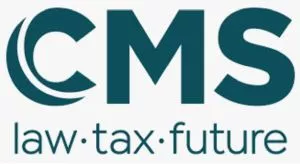On 23 May 2024, the Luxembourg Government has submitted the tax bill 8388 for approval to the Luxembourg Chamber of deputies. The bill proposes amendments to certain tax provision (i) following developments in case law, (ii) with a view to ensuring legal certainty with respect to the application of the provisions in question and (iii) to simplify, optimize and digitize certain administrative procedures.
The main tax measures can be summarized as follows.
Amendment of §8 of the net wealth tax law (NWT Law)
The proposed amendment aims at complying with the decision of the Constitutional Court dated 10 November 2023 (for more information, see our previous newsletter). Said case law held that the provisions of paragraph 8 (2) a) of the NWT Law are contrary to Article 10bis (1) of the Luxembourg Constitution (and since July 2023, to Article 15 of the Luxembourg Constitution as amended) which proclaims the principle of equality. The bill also simplifies the provisions relating to the minimum NWT by establishing the various thresholds to be exclusively based on the taxpayer's total balance sheet and no longer based on the composition of taxpayer's assets. The minimum NWT will now vary between EUR 535 and EUR 4,815 (maximum amount).
If adopted, the amendment will be applicable as from tax year 2025. Therefore, the NWT due will vary as follows:
- EUR 535 when the taxpayer's balance sheet does not exceed EUR 350,000
- EUR 1,605 when the taxpayer's balance sheet is above EUR 350,000 and do not exceed EUR 2,000,000
- EUR 4,815 when the taxpayer's balance sheet exceeds EUR 2,000,000
Amendment of Article 101 of the Luxembourg income tax law (LITL)
This amendment provides clarifications following recent case law (for more information, see our previous newsletter) in view of creating a more coherent framework for the partial liquidations, notably in the presence of classes of shares. In this respect, the bill clarifies that the redemption/repurchase of (classes) of shares qualifies as a partial liquidation when the following conditions are cumulatively met:
- An entire class is redeemed/repurchased followed by its cancellation (through a share capital reduction) which must occur within six months as from the date of the redemption/repurchase;
- The classes of shares must be implemented at the time of the incorporation of the Luxembourg company or at the time of a share capital increase;
- Each class of shares must provide different economic rights. According to the commentary to the bill this should be the case when each class is entitled to a preferential dividend, or right to profits, derived from a determined period or tracking a specific asset/activity;
- The redemption/repurchase price must be determinable based on criteria set out in the articles of association of the Luxembourg company or in any other document referred to in these articles and that allows to reflect the fair market value of the said class at the time of its redemption/repurchase.
The bill specifies that in case of a redemption/repurchase of shares held by an individual holding an "substantial participation" (i.e., broadly, representing more than 10% of share capital), the identity of such shareholder must be reported in the company's annual tax return.
Finally, the commentary to the bill mentions that the general anti-abuse rule remains applicable.
This amendment will come into force the day after the publication of the law in the Official Journal.
Amendments of Article 115 (15) a LITL and Article 166 LITL
The bill introduces the possibility for a taxpayer to renounce to the benefit of the 50% dividend exemption provided for by Article 115 (15) a LITL and to the full exemption provided by Article 166 LITL for holding companies. For the latter the bill provides the possibility to renounce the full exemption only when the conditions are met based on the minimum acquisition price of EUR 1,2 million only. The Luxembourg taxpayer will need to exercise this option on a yearly basis and for each of its shareholdings. In general, the aim of these provisions is to allow taxpayers to use their carried forward tax losses whose deductibility is limited in time since 1 January 2017. In addition, the aim of the option provided for Article 166 LITL is to align it with the participation exemption regime that exists in certain EU Member States.
These provisions will be applicable as from tax year 2025.
Digitalization of certain tax returns
The bill introduces an obligation to file electronically certain tax returns such as withholding tax returns for director fees but also withholding tax returns on remuneration and tax credits to be submitted by employers, temporary employment agencies and pension company. This provision will be applicable from 1 January 2025.
The content of this article is intended to provide a general guide to the subject matter. Specialist advice should be sought about your specific circumstances.




